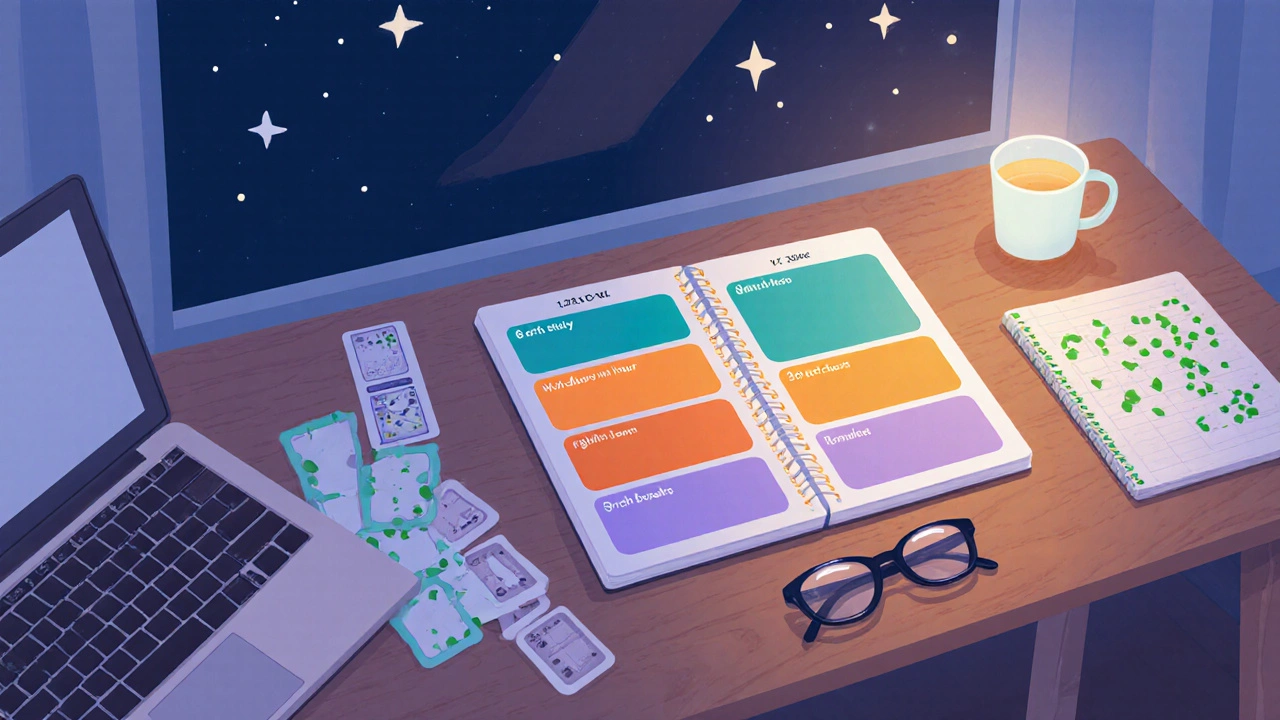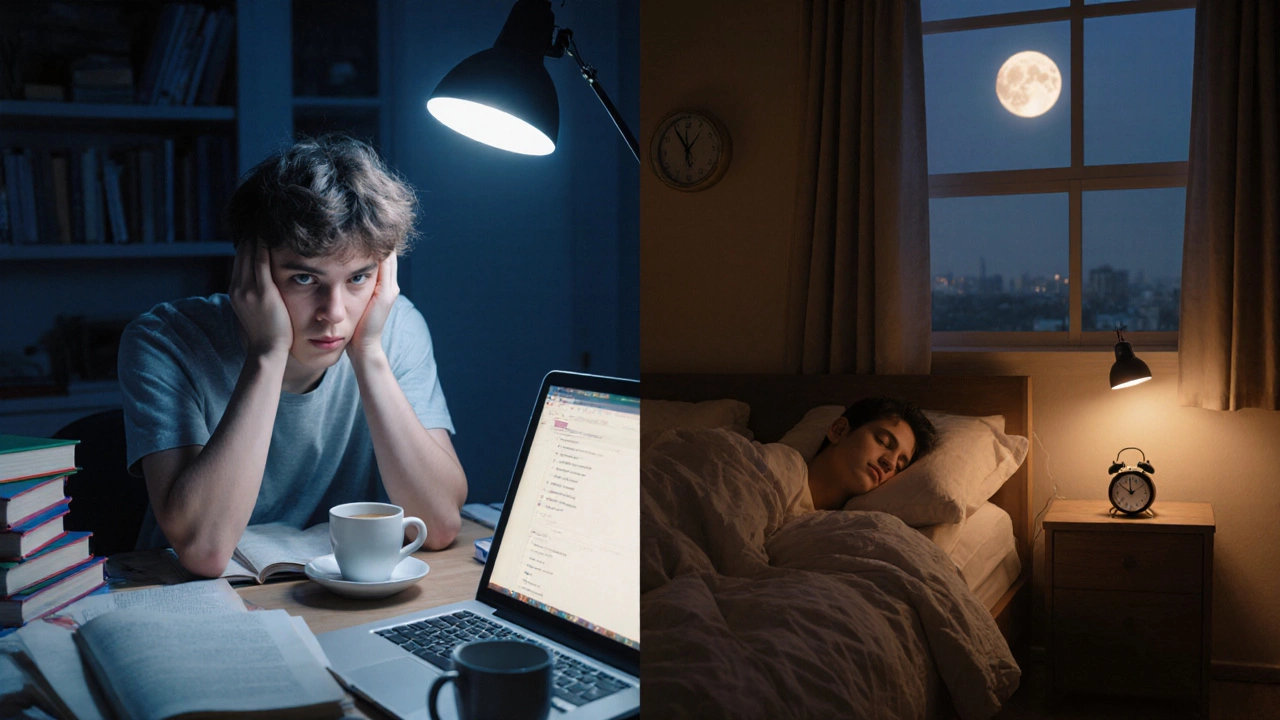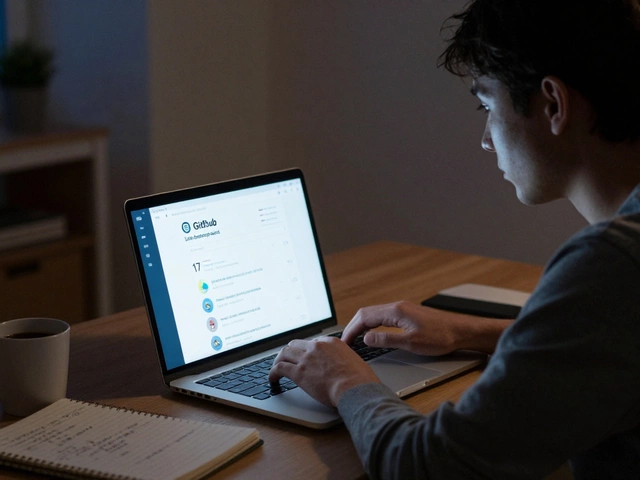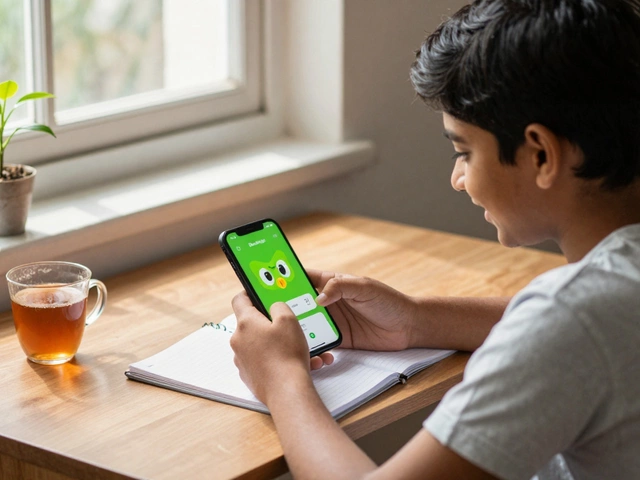JEE Sleep Calculator
Optimize Your Sleep for JEE Success
Calculate your ideal bedtime based on your age and study goals. Proper sleep improves memory consolidation, focus, and problem-solving speed during exam preparation.
Your Recommended Bedtime
Ideal Sleep Duration:
Recommended Bedtime:
Most JEE hopefuls think that pulling all‑nighters is the secret to cracking the exam, but a 2023 study of over 2,000 engineering students showed that those who slept less than six hours a night scored on average 12% lower than peers who logged eight‑plus hours. If you’re aiming for a top rank, the real power move might be closing your eyes earlier rather than staying up later.
Why sleep matters for a JEE aspirant
When you hit the books for JEE aspirant a student preparing for India’s toughest engineering entrance exam, you’re not just memorizing formulas; you’re wiring neural pathways that need time to solidify. Memory consolidation the process by which short‑term memories become stable long‑term ones during sleep kicks in during deep NREM cycles, turning yesterday’s problem‑solving practice into tomorrow’s recall speed. Lack of adequate rest disrupts circadian rhythm the body’s internal clock that regulates sleep‑wake cycles, leading to sluggish reaction times, poorer concentration, and higher stress levels-all killers for high‑stakes timed tests.
What the science says: recommended sleep duration
Experts from the National Sleep Foundation and the American Academy of Sleep Medicine agree on age‑specific sleep windows. For most JEE candidates (typically 16‑19 years old), the sweet spot is 8‑10 hours per night. Below is a quick reference:
| Age | Recommended Hours | Why it matters |
|---|---|---|
| 14‑17 | 8‑10 | Supports rapid brain growth and memory consolidation |
| 18‑21 | 7‑9 | Balances hormonal changes and study load |
| 22‑25 | 7‑8 | Maintains cognitive sharpness for intensive revision |
Missing even an hour from this window can shave precious points off a mock test, according to a 2022 IIT‑Kharagpur analysis of 500 aspirants.
How sleep translates into better study efficiency
- Improved focus: After a full night’s rest, the prefrontal cortex fires more efficiently, letting you tackle complex problems without mental fog.
- Faster recall: Studies on academic performance grade outcomes and test scores show that students who slept 8+ hours remembered concepts 25% better than sleep‑deprived peers.
- Reduced burnout: Consistent sleep lowers cortisol, the stress hormone that otherwise erodes motivation and leads to dropout rates hovering around 30% in JEE‑prep camps.
Designing a JEE‑friendly study schedule
- Identify your peak alertness window (usually 9‑11 am or 7‑9 pm) and allocate the toughest topics there.
- Schedule a "wind‑down" hour at least 30 minutes before bedtime - dim lights, stop screen use, and do light revision or summary notes.
- Commit to a fixed bedtime and wake‑up time, even on weekends; consistency reinforces melatonin the hormone that signals sleep onset production.
- Insert short 5‑10 minute breaks every 45‑50 minutes of study; use the Pomodoro method to keep the brain fresh.
- Plan a "catch‑up" day once every two weeks where you review weak areas without adding new content - this prevents overload.
Following a routine like this lets you hit around 8‑9 hours of sleep while still covering 6‑7 hours of focused study daily - the sweet spot many toppers swear by.

Common sleep killers and how to beat them
Even with the best plan, certain habits sabotage rest:
- Late‑night cramming: The brain’s adrenaline spikes, delaying sleep onset. Switch to a quick recap sheet instead.
- Blue‑light exposure: Phones and laptops suppress melatonin. Use "night mode" or wear blue‑light blocking glasses after 9 pm.
- Caffeine overload: A single cup after 3 pm can keep you wired for hours. Opt for green tea or water.
- Irregular napping: Long naps (>30 min) fragment nighttime sleep. Keep power naps under 20 minutes.
Addressing these pitfalls can add 30‑45 minutes of quality sleep per night, which adds up to weeks of extra recovery over a 10‑month prep cycle.
Tracking and improving sleep quality
Sleep isn’t just about hours; quality matters too. Simple tools can help:
- Sleep journals: Log bedtime, wake‑time, and how refreshed you feel. Patterns emerge quickly.
- Wearable trackers (e.g., Fitbit, Apple Watch): Provide REM/NREM breakdowns and suggest bedtime adjustments.
- White‑noise apps: Mask household sounds that disturb deep sleep.
Experiment with one tool at a time; after two weeks, you’ll see which tweaks boost your concentration during mock tests.
Quick checklist for optimal JEE sleep
- Aim for 8‑10 hours nightly (16‑19 yr) or 7‑9 hours (18‑21 yr).
- Set a fixed sleep‑wake schedule, even on holidays.
- Turn off screens at least 30 min before bed.
- Keep caffeine after 3 pm.
- Use a short wind‑down routine (light reading, breathing).
- Log sleep daily and adjust based on how well you retain material.
Following this list consistently will help you stay sharp, retain more formulas, and keep anxiety at bay - the three pillars of JEE success.
How many hours of sleep are ideal for a 17‑year‑old JEE student?
The sweet spot is 8‑10 hours per night. This range supports rapid brain growth, memory consolidation, and stress regulation, all of which are crucial during intense JEE prep.

Can I still get good JEE scores if I sleep less than 6 hours?
It’s possible, but statistically you’ll score lower. A 2023 analysis of 2,000 aspirants found a 12% score drop on average for those sleeping under six hours, mainly due to reduced focus and poorer recall.
What are effective bedtime routines for JEE prep?
Turn off screens 30 minutes before sleep, dim lights, do light revision (e.g., flashcards), practice deep breathing, and keep a consistent bedtime. These habits boost melatonin production and improve sleep depth.
Should I nap during the day?
Short power naps (15‑20 minutes) are fine if you feel sluggish, but avoid longer naps that can fragment nighttime sleep. Aim for a nap before 3 pm.
How does sleep affect problem‑solving speed?
During deep sleep, the brain reorganizes neural connections, which speeds up pattern recognition. Students who slept ≥8 hours showed a 20‑25% faster problem‑solving rate in timed mock tests compared to sleep‑deprived peers.


